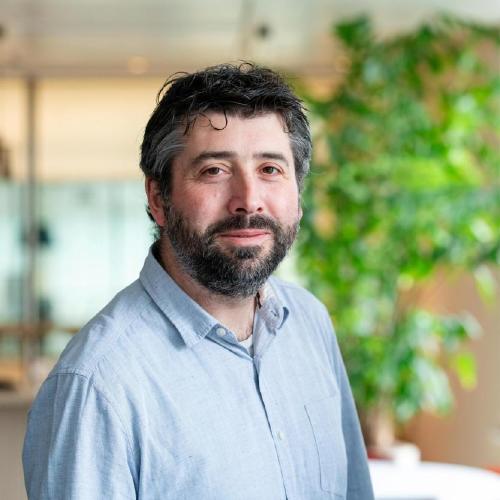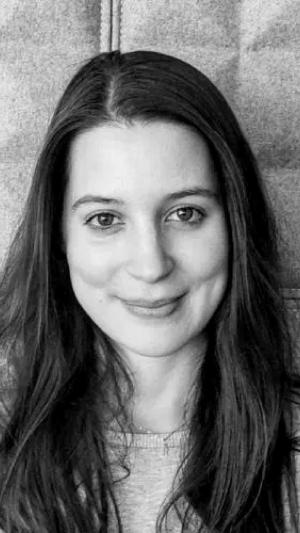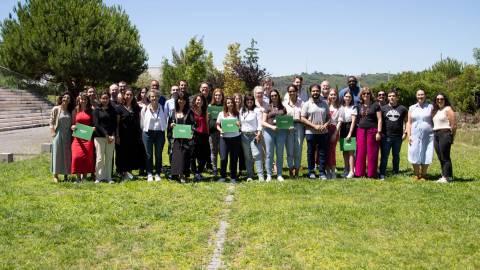The Vrije Universiteit Brussel has its first EUTOPIA PhD. Hungarian Rebeka Balogh obtained her PhD from the VUB and the British University of Warwick with funding from the European university network EUTOPIA. Rebeka conducted research on the health consequences of precarious jobs. Professor Christophe Vanroelen was her VUB supervisor. “In a way, EUTOPIA saved academic collaborations with the British after the Brexit.”

Is this first EUTOPIA PhD a milestone?
“First of all, it is a very strong PhD with international stature. We were able to collaborate with excellent scientists from the University of Warwick, which was very stimulating. This is a great first example of a successful EUTOPIA collaboration. And for the VUB and for the research of the future, it is an important new way to obtain a PhD.”
What was the most striking insight of this thesis for you?
“We have been doing research for a long time on whether precarious work leads to more health problems. Precarious work is uncertain, unpredictable, unstable and risky for the worker. Rebeka’s research examines that question for the first time from a longitudinal perspective, so that we could actually see whether this kind of work is the source of medical problems. To do so, Rebeka examined three databases, including Belgian data from the census and the Crossroads Bank for Social Security and a large-scale UK panel study, Understanding Society. She concentrated her research on people who were healthy at the beginning of the measurement, and then looked at how the situation evolved over several years. Her study shows: those who were exposed to precarious work are at higher risk of poor mental and physical ill health, even if those individuals were in good health at the start of data collection. You can also see the high quality of her research by the level of scientific journals in which the results have been published.”
"EUTOPIA saved academic cooperation with the British"
How did Rebeka end up at the VUB?
“Rebeka was selected from a large pool of international candidates for a shorter ongoing project within the research group. She is Hungarian, obtained her bachelor’s degree in sociology in Budapest and then her master’s degree in public policy and human development at Maastricht University. Both of them with honours. When Rebeka joined, we were still looking for funds to give her enough time for a PhD. At that time, EUTOPIA came up with a first call for PhD students. We applied for that and won.”
How was the collaboration with Warwick in this post-Brexit period?
“Collaboration was of course difficult after Brexit. I also think it was an impetus for Warwick to cooperate fully in the EUTOPIA story. There were all kinds of scenarios about the impact of the Brexit on research, up to and including completely disconnecting research from UK institutions with European institutions. In hindsight, it turned out to be less drastic. Britain is again part of Horizon, the European funding programme for research and innovation. But I think EUTOPIA was also an important tool during that period to maintain continuity in the collaborations. In a way, EUTOPIA saved academic cooperation with the British after Brexit. And of course, in the long run, the participation of the British is also a good thing for EUTOPIA.”
Rebeka Balogh: "I was able to work on and submit my PhD thanks to EUTOPIA"
 You did your bachelor’s in Budapest, your master’s in Maastricht, and your PhD in Warwick and Brussels. Why made you pursue this international academic career?
You did your bachelor’s in Budapest, your master’s in Maastricht, and your PhD in Warwick and Brussels. Why made you pursue this international academic career?
“The master’s programme in Maastricht simply really appealed to me. Then I moved to Belgium and worked outside academia, but I realised that I really wanted to do a PhD. Research was what interested me the most. Then, luckily, a position was advertised at the VUB – I applied and got it. I ended up spending four and a half years in Brussels, and I have wonderful memories of it. For me, a lot happened in that period, not only with my PhD but also in my personal life. Coming back to Brussels for the defence of my PhD was quite emotional.”
How does it feel to be away from home each time?
“I live in Glasgow now. Of course I miss my home, I miss the language, and most of all I miss my family and friends.”
Is there a difference between students from western and central Europe?
“I think the difference is in financial resources. Not everyone has the means to study abroad. I was privileged to be able to do so.”
Where does your interest in precarious work come from?
“In Brussels, I worked for a trade union federation. That’s when I first delved into the topic of precarious employment. My academic interest for a while was poverty, in measurement, definition, and gender differences. Then my interest shifted to job quality: what makes a job good and what is a good job, and what inequalities are there in accessing jobs of a certain quality? From the study of social inequality, I moved to the study of inequalities in health, and then specifically to studying the relationship between precarious work and health.”
What was the role of EUTOPIA?
“EUTOPIA funded my fellowship. That allowed me to focus on my subject and was a huge support. I was able to work on and submit my PhD thanks to EUTOPIA’s financial support.”
Was it difficult to get your PhD at two universities?
“I can’t compare because I’ve never done another PhD. But I would say it was definitely very insightful to do research at two universities in two countries. I think it has added value to my PhD. First, I was able to work with both Belgian and UK data. In addition, I think it has shaped me as a scientist. And it’s an experience you can put on your CV. In academia, that can also count.”
What are your next steps?
“I started a new job at the School of Health and Wellbeing in Glasgow around the time of submitting my PhD, where I focus on health inequalities.
-----------
This content was originally published on the VUB wesbite.

